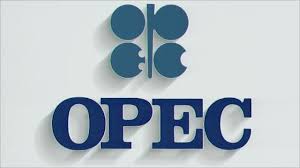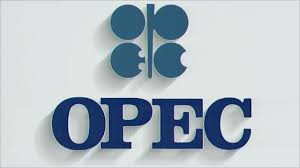
After OPEC leader Saudi Arabia softened its stance on arch-rival Iran amid mounting pressure from low oil prices, the oil cartel agreed on Wednesday modest oil output cuts in the first such deal since 2008.
"OPEC made an exceptional decision today ... After two and a half years, OPEC reached consensus to manage the market," said Iranian Oil Minister Bijan Zanganeh, who had repeatedly clashed with Saudi Arabia during previous meetings.
Output to a range of 32.5-33.0 million barrels per day would be reached after reduction of output by the Organization of the Petroleum Exporting Countries, said the Iranian minister and other ministers. OPEC estimates its current output at 33.24 million bpd.
"We have decided to decrease the production around 700,000 bpd," Zanganeh said.
Abandoned a year ago, the move would effectively re-establish OPEC production ceilings.
An invitation to join cuts could also be extended to non-OPEC countries such as Russia at the next formal OPEC meeting in November and a decision on how much each country will produce would be taken.
Oil prices traded above $48 per barrel with a jump of more than 5 percent. While some traders said that they wanted to see the details of t he deal, others said they were impressed OPEC had managed to reach a compromise after years of wrangling.
"This is the first OPEC deal in eight years! The cartel proved that it still matters even in the age of shale! This is the end of the ‘production war' and OPEC claims victory," said Phil Flynn, senior energy analyst at Price Futures Group.
The market had yet to discover who would produce what: "I want to hear from the mouth of the Iranian oil minister that he’s not going to go back to pre-sanction levels. For the Saudis, it just goes against the conventional wisdom of what they’ve been saying," said Jeff Quigley, director of energy markets at Houston-based Stratas Advisors.
Iran, Nigeria and Libya would be allowed to produce "at maximum levels that make sense" as part of any output limits, said Saudi Energy Minister Khalid al-Falih.
Earlier Riyadh has said that only if every other OPEC and non-OPEC producer reduced output would Saudi Arabia would follow suit and this measure by the country represents a strategy shift. Iran has argued that since its production recovers after the lifting of EU sanctions earlier this year, it should be exempt from such limits.
According to the International Monetary Fund, Iran’s economy could expand by almost 4 percent this year and in a post-sanctions environment the country is suffering less pressure from the halving in crude prices since 2014 but Saudi and Iranian economies depend heavily on oil.
But Riyadh is being forced to cut the salaries of government employees after the country stares at a second year of budget deficits after a record gap of $98 billion last year.
At par with Russia and the United States, with output of more than 10.7 million bpd, Saudi Arabia is by far the largest OPEC producer. Together one third of the world’s oil is extracted by the three countries.
(Source:www.reuters.com)
"OPEC made an exceptional decision today ... After two and a half years, OPEC reached consensus to manage the market," said Iranian Oil Minister Bijan Zanganeh, who had repeatedly clashed with Saudi Arabia during previous meetings.
Output to a range of 32.5-33.0 million barrels per day would be reached after reduction of output by the Organization of the Petroleum Exporting Countries, said the Iranian minister and other ministers. OPEC estimates its current output at 33.24 million bpd.
"We have decided to decrease the production around 700,000 bpd," Zanganeh said.
Abandoned a year ago, the move would effectively re-establish OPEC production ceilings.
An invitation to join cuts could also be extended to non-OPEC countries such as Russia at the next formal OPEC meeting in November and a decision on how much each country will produce would be taken.
Oil prices traded above $48 per barrel with a jump of more than 5 percent. While some traders said that they wanted to see the details of t he deal, others said they were impressed OPEC had managed to reach a compromise after years of wrangling.
"This is the first OPEC deal in eight years! The cartel proved that it still matters even in the age of shale! This is the end of the ‘production war' and OPEC claims victory," said Phil Flynn, senior energy analyst at Price Futures Group.
The market had yet to discover who would produce what: "I want to hear from the mouth of the Iranian oil minister that he’s not going to go back to pre-sanction levels. For the Saudis, it just goes against the conventional wisdom of what they’ve been saying," said Jeff Quigley, director of energy markets at Houston-based Stratas Advisors.
Iran, Nigeria and Libya would be allowed to produce "at maximum levels that make sense" as part of any output limits, said Saudi Energy Minister Khalid al-Falih.
Earlier Riyadh has said that only if every other OPEC and non-OPEC producer reduced output would Saudi Arabia would follow suit and this measure by the country represents a strategy shift. Iran has argued that since its production recovers after the lifting of EU sanctions earlier this year, it should be exempt from such limits.
According to the International Monetary Fund, Iran’s economy could expand by almost 4 percent this year and in a post-sanctions environment the country is suffering less pressure from the halving in crude prices since 2014 but Saudi and Iranian economies depend heavily on oil.
But Riyadh is being forced to cut the salaries of government employees after the country stares at a second year of budget deficits after a record gap of $98 billion last year.
At par with Russia and the United States, with output of more than 10.7 million bpd, Saudi Arabia is by far the largest OPEC producer. Together one third of the world’s oil is extracted by the three countries.
(Source:www.reuters.com)





